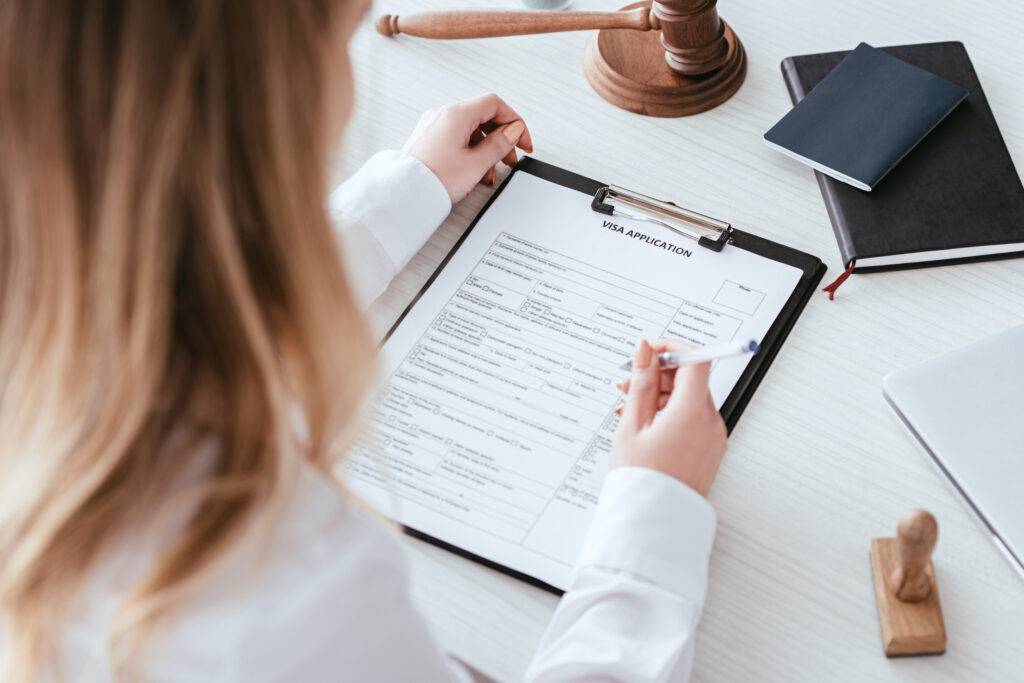
Are you planning to visit or move to France for work, study, or leisure? If you are an American citizen, acquiring a French visa can feel like a complicated process involving endless paperwork and bureaucracy. However, with the right guidance, you can simplify the process and make your journey smooth and hassle-free.
Here at French Connections HCB, we are dedicated to helping Americans navigate the complexities of French bureaucracy. In this comprehensive guide, we will walk you through the steps required to acquire a French visa, the different types of visas available, and share tips to help make your application process smoother.
Understanding the Different Types of French Visas
1. Short-Stay Schengen Visa (Visa de court séjour): This visa allows you to visit France for a maximum of 90 days within a 180-day period for tourism, business, or family reasons. Schengen visas permit you to travel within the Schengen Area, consisting of 26 European countries that have abolished passport control at their mutual borders.
2. Long-Stay Visa (Visa de long séjour or Visa D): If you plan to stay in France for more than 90 days, you’ll need a long-stay visa. This visa type encompasses various categories such as work, study, family reunification, scientific research, and artistic projects. Long-stay visa holders often must apply for a residence permit, known as a “Carte de Séjour,” upon arrival in France.
3. Specialized Visas: Certain situations may warrant a specialized French visa. For instance, the “Talent Passport” program that targets highly skilled workers, scientists, researchers, and artists is one of these visas.
Gathering the Necessary Documentation for Your Visa Application
Regardless of the visa type you apply for, you will need to assemble several key documents. Keep in mind that some additional requirements might apply depending on your specific circumstances. Commonly requested documents include:
1. A valid passport: Your passport must have at least two blank pages and be valid for at least three months beyond the visa’s expiration date.
2. Completed application form: Download, print and fill in the appropriate visa application form from the French consulate’s website.
3. Proof of financial resources: Demonstrate your financial means by submitting your recent bank statements, tax returns, or a certificate of employment.
4. Proof of accommodation: Provide a copy of your hotel booking, rental agreement, or invitation letter from your host in France.
5. Return ticket: A copy of your round-trip ticket or a detailed itinerary of your planned trip.
6. Travel insurance: Purchase a policy covering medical expenses, hospitalization, and repatriation up to €30,000.
The French Visa Application Process – Steps and Timeframes
1. Fill out the application form: Download the appropriate form from the consulate’s website, fill it in, and print it.
2. Book an appointment: Schedule an appointment at the nearest French consulate or visa application center to submit your application and biometric data. Appointments can usually be booked online or by phone.
3. Prepare your documents: Assemble all the required documents along with photocopies of each document. Organize them in a clear and straightforward manner.
4. Attend your appointment: Arrive at the consulate or visa application center on time, dress neatly, and bring your application form, documents, and passport. Be prepared to pay a fee for your visa, which varies depending on the visa type.
5. Wait for the decision: The processing time for a French visa can range from a few days to several weeks. You will be notified once your visa is ready, and you can either pick it up in person or have it mailed to you.
Frequently Asked Questions and Expert Advice
1. Can I extend my French visa while in France?
Short-stay Schengen visas typically cannot be extended except in exceptional circumstances, such as force majeure or serious personal reasons. Long-stay visas, however, can generally be renewed through the local préfecture.
2. Will I be allowed to work in France with a visitor’s visa?
- No, a visitor’s visa does not grant permission to work in France. If your goal is to work in the country, you must apply for a work visa. Short-Term Stays (Up to 90 Days): Under the Schengen Area agreement, most foreigners can enter France for up to 90 days without a visa (visa exemption) or with a short-stay tourist visa for certain nationalities. During this period, technically, you’re not allowed to work. However, if you’re working remotely for a non-French company and not engaging in the local labor market, it’s generally tolerated.
- Long-Stay Visitor Visa: If you plan to stay longer than 90 days, you can apply for a long-stay visitor visa. This visa is suitable if you’re not planning to work within France or receive a salary from a French entity. It’s important to clarify that your work activities are remote and for a company outside of France.
- Digital Nomad Visa: France does not currently offer a specific ‘digital nomad’ visa. However, the country has been exploring options to attract remote workers, freelancers, and digital nomads. But the long stay visitor visa basically does this for you.
- Legal Considerations: It’s crucial to ensure that your remote work activities comply with French immigration laws. Working remotely for a non-French company while on a visitor visa is a gray area and should be approached with caution.
- Investor Visa: This is a great option for those looking to open a gites or wedding business in France, this could be a 4 year visa renewable in France directly to a 5 year residency, minimum investment required is 300000€ and this could be the purchase of the property.
3. Can my family members join me in France?
If you hold a long-stay visa for work or study and wish to bring your family, you should apply for a family reunification visa for them.
Expert tip: Make digital scans and photocopies of all essential documents, both for your application and to carry with you when traveling. That way, if any documents get lost or stolen, you will still have access to the information you need.
Conclusion
Acquiring a French visa may seem intimidating, but by following this Ultimate Guide and being well-prepared, you can effectively navigate the French bureaucracy and avoid unnecessary stress. Remember, French Connections HCB is here to assist you in making your journey as smooth as possible. Contact us to learn more about our services and how we can support you throughout your application for a France visa.


